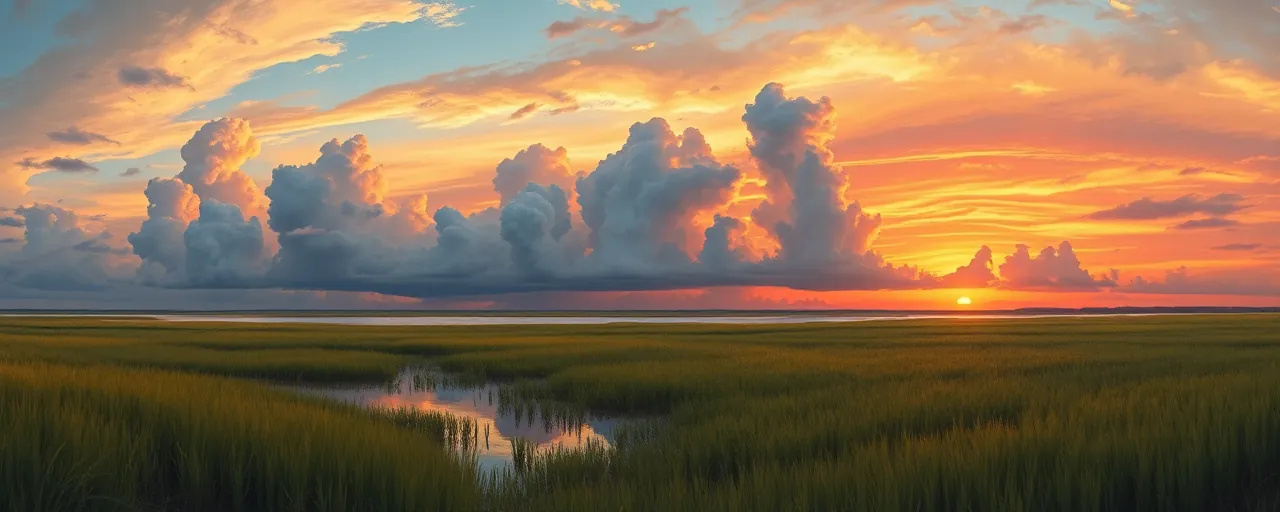A Fresh Crew for a Murky Challenge
Florida Governor Ron DeSantis dropped a surprise announcement on April 9, 2025, naming Thomas Hurley, Robert Spottswood Jr., and Charlette Roman to the South Florida Water Management District. The trio steps into a role that’s less about ribbon-cutting and more about wrestling with one of the state’s thorniest issues: water. With the region facing everything from rising seas to sprawling suburbs, their appointments signal a new chapter in a saga that’s been simmering for decades.
These picks aren’t just names on a list; they’re a glimpse into how Florida plans to navigate its watery future. Hurley brings corporate heft, Spottswood offers real estate savvy, and Roman adds a veteran’s grit. Together, they’re tasked with steering a district that juggles flood control, water supply, and ecosystem repair, all while the Florida Senate’s confirmation looms. For folks new to the game, this isn’t abstract policy, it’s about who controls the tap in a state where water’s both a lifeline and a liability.
Who’s Who at the Helm
Thomas Hurley heads Becker Holding Corporation, a gig that’s landed him in the thick of business leadership circles like the Young Presidents Organization. He’s no stranger to community boards either, having served with the Boys and Girls Club of Martin County and the Federal Reserve Bank’s Miami branch. Spottswood Jr., meanwhile, runs Spottswood Companies and its offshoots, blending real estate and construction know-how with a seat on the South Atlantic Fishery Management Council. His ties to the Nature Conservancy hint at a green streak, but his day job’s rooted in development, a big player in South Florida’s water woes.
Then there’s Charlette Roman, a retired U.S. Army veteran who’s traded combat boots for public service. She’s done stints as a Marco Island city councilor and worked as a training specialist for Northrop-Grumman. Her military background aligns with Florida’s push to slot veterans into state roles, a nod to their discipline and drive. These three aren’t just résumés; they’re a mix of private-sector muscle and public-service chops, now facing a confirmation process that’ll test their mettle before they can dig in.
Water Woes and Power Plays
South Florida’s water management isn’t some sleepy bureaucracy; it’s a high-stakes balancing act. The district oversees a sprawling network of canals, pumps, and levees meant to keep floods at bay, water flowing, and the Everglades alive. But it’s not all smooth sailing. Urban growth and real estate booms, like the kind Spottswood’s companies fuel, chew up wetlands and strain supplies. Add climate change, with its creeping sea levels and wilder storms, and you’ve got a recipe for tough calls. Hurley’s corporate lens might push efficiency, while Roman’s local government experience could lean toward community needs.
Appointments like these don’t happen in a vacuum. Florida’s governor has been flexing more muscle over state agencies lately, from university boards to water districts. Some see it as a slick move to streamline decisions; others worry it’s stacking the deck with loyalists. Historical shifts back this up, since the early 2000s, governors have tightened their grip on key posts, often sparking debates over transparency. For everyday Floridians, this translates to real stuff: flood risks in their backyards, clean water at the tap, or whether the Everglades gets a fighting chance.
The Bigger Picture
Zoom out, and Florida’s water story’s been a rollercoaster. Back in 1972, the state carved out its five water districts to tackle floods and droughts with science, not politics. Fast forward, and projects like the $3.5 billion Everglades restoration push show big ambition, but snags like funding hiccups keep progress slow. Corporate players, think PepsiCo types, are pitching in too, with water-saving tricks and watershed fixes. Yet, marrying their bottom lines with nature’s needs isn’t always a clean fit, especially when construction keeps paving over what’s left of the wild.
Veterans like Roman fit into this puzzle too. Florida’s got 1.5 million of them, and state laws nudge them toward public jobs, banking on their skills to steady the ship. Hurley and Spottswood, with their private-sector roots, reflect another angle: business tying into public goals. Critics wonder if this blend skews toward development over conservation, while supporters argue it’s the practical mix South Florida needs. Either way, these appointees are stepping into a mess of competing demands, where every choice ripples out to real people and places.
What’s Next for Florida’s Water
The Senate’s confirmation will be the first hurdle for Hurley, Spottswood, and Roman. If they clear it, they’ll face a job that’s less about grand speeches and more about gritty trade-offs. Will they prioritize flood defenses for booming suburbs or pump cash into restoring wetlands? Can they juggle corporate input without losing sight of the little guy? The district’s track record offers hope, decades of work have cut some pollution and shored up water storage, but the clock’s ticking as seas rise and cities sprawl.
For Floridians watching from the sidelines, this isn’t just insider baseball. It’s about whether their streets stay dry, their taps run clean, and their state’s wild heart keeps beating. These three appointees, with their mix of backgrounds, are now in the hot seat. Their decisions won’t please everyone, but they’ll shape South Florida’s future, one canal, one policy, one hard call at a time. The stakes are high, and the water’s rising; all eyes are on what they do next.
